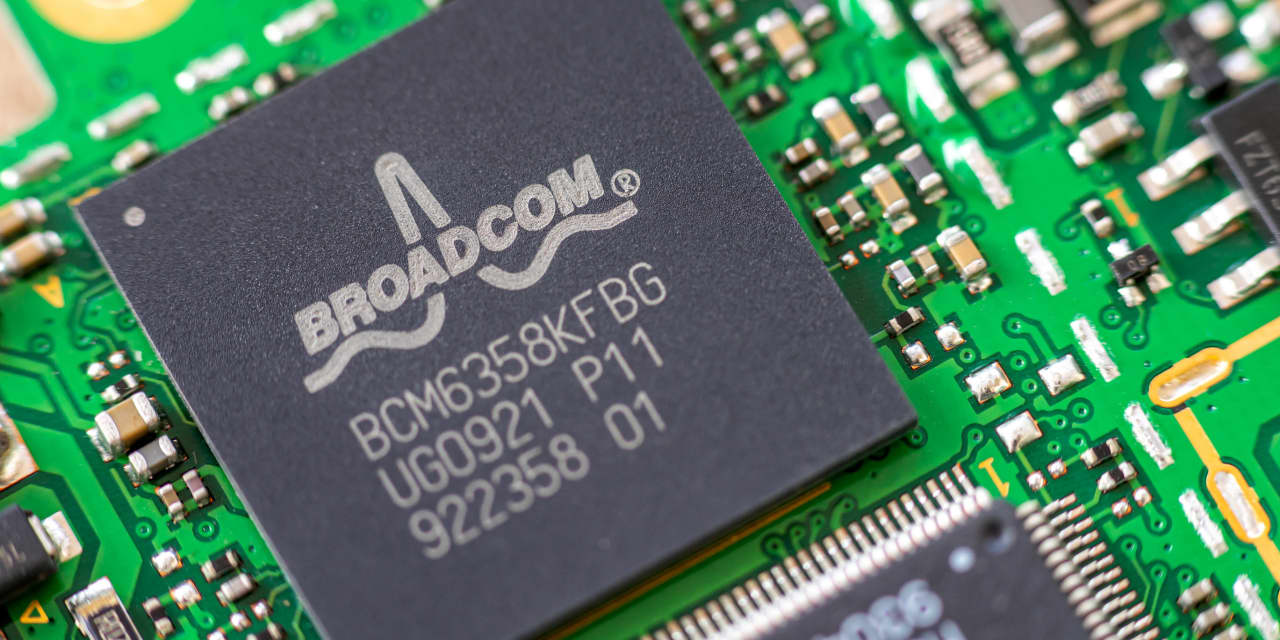Broadcom
has been anointed as the next big semiconductor play on the growth of artificial intelligence after
Nvidia.
That’s setting a high bar for the stock but Wall Street analysts are confident in its AI prospects.
Broadcom
(ticker: AVGO) shares were down 4.5% at $881.67 in premarket trading on Friday, with investors seemingly reacting with disappointment that its latest earnings were only mildly better than consensus and its guidance was in line with existing projections.
Broadcom might be suffering under comparisons with Nvidia’s (NVDA) blowout earnings raising expectations. However, Broadcom’s AI-related revenue is expected to rise to more than $7 billion next fiscal year from around $3.8 billion this year. That pace of growth is enough for analysts to get behind the stock.
“Overall we continue to believe Broadcom is successfully engineering a soft landing, with its cyclical resilience, secular growth opportunities in AI, and potential accretion from
VMware
combining to yield attractive upside,”
Deutsche Bank’s
Ross Seymore wrote in a research note.
Seymour raised his target price on Broadcom to $950 from $905 and maintained a Buy rating.
Broadcom has attracted plenty of positive opinions as its AI revenue projections are set to make it the second largest U.S. chip company in the sector, trailing only Nvidia. Analysts were generally reiterating their backing after its latest earnings.
KeyBanc’s John Vinh raised his price target on the stock to $1,000 from $940. The new target is based on a price-to-earnings multiple of 19 times projected fiscal 2024 earnings, partly based on the expected closing of its VMware acquisition.
Rick Schafer at
Oppenheimer
raised his price target to $990 from $900, based on a P/E multiple of 22 times the research firm’s expected earnings for Broadcom in its next fiscal year.
“We like Broadcom’s sustained growth led by franchises DC/cloud, networking, wireless and software. Reiterate Outperform,” Schafer wrote.
Write to Adam Clark at adam.clark@barrons.com
Read the full article here













Leave a Reply